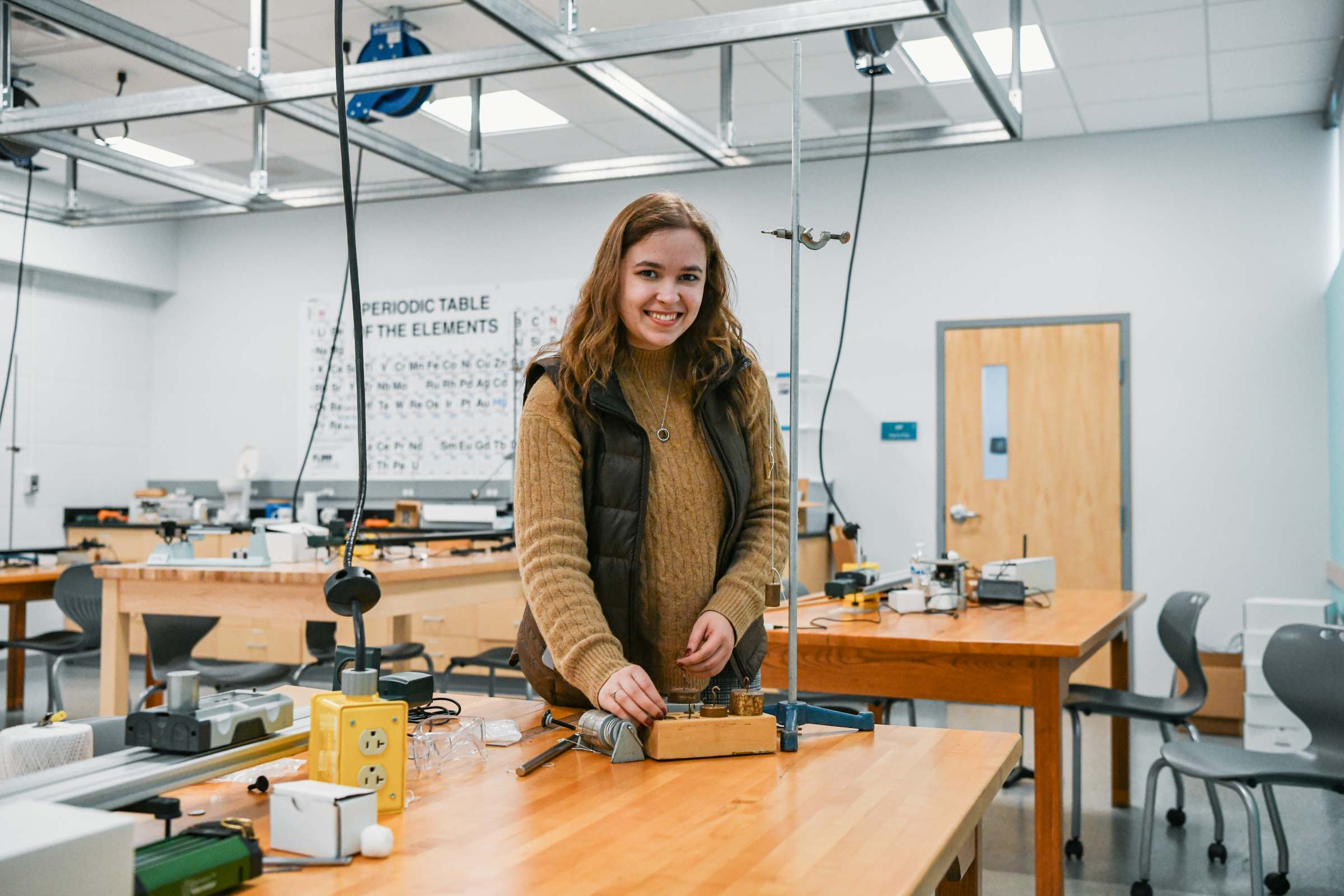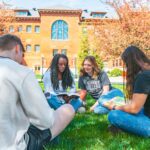4. You came in with 47 college credits — how did you accrue so much dual credit, given that you came from a homeschool background?
I had several avenues for dual credit. First, I was able to take select AP classes at my local public high school, which is something not all public schools offer. Through that opportunity, I earned 16 science credits and 7 math credits. The second way I earned dual credit was through online classes from different universities, including Asbury University and Cedarville University. By taking these online classes, I earned 24 general education and humanities credits, for a total of 47 college credits.
5. Are you involved in any student clubs or other extracurricular activities — what have those experiences been like for you?
I have been involved with several student clubs and extracurricular activities. I was a member of the Turning Point USA club last year, and I helped found the secondary education club. The secondary education club’s goal is to connect secondary education students with each other, as there aren’t that many of us, and there are only a few classes dedicated to secondary students. I also hold three on-campus jobs currently, including peer academic facilitator, science content tutor, and ceramics TA. The aim of the peer academic facilitator program is to help students who are struggling with either their grades or the transition to college to learn how to succeed. Those responsibilities have kept me pretty busy, but I enjoy helping students reach their full potential.
6. What does a liberal arts education mean to you, and in what ways do you live out the liberal arts ideals as a student at Grace?
To me, receiving a liberal arts education means that I will be a well-rounded graduate. Not only do I take my science and education classes for my major, but I also have the opportunity to study the Bible under qualified professors and enjoy creativity through several art classes. This combination of subject matter allows me to interact with and learn from students in a wide array of majors.
7. How have your experiences as a Grace student impacted your faith?
I really enjoy the integration of faith in my life science education degree. I had a solid Christian base in science through our homeschool curriculum, but I also went through a public science program. Having experienced both, I have to say that Grace does a very good job of hiring faculty who truly believe that there is scientific evidence that supports the Bible and who are not afraid to share that evidence with their students. I’ve also seen my faith strengthened through my Bible classes. I’ve learned a lot about Bible study and current issues from a Biblical perspective through those classes.
But more than anything else, when you ask Grace what she loves most about her life science education degree at Grace, she will tell you it’s the people. Her time at Grace has allowed her to make lasting connections with her peers and professors, which she knows she will treasure long after graduation.
Learn more about our life science education degree, and read this blog to learn about why you should consider a secondary education degree.





